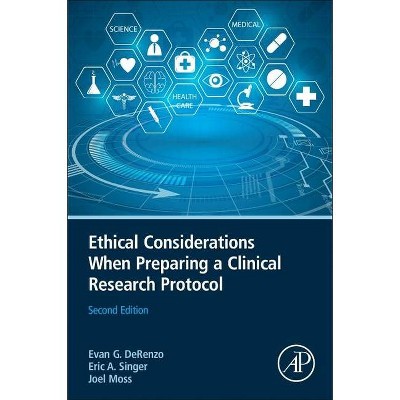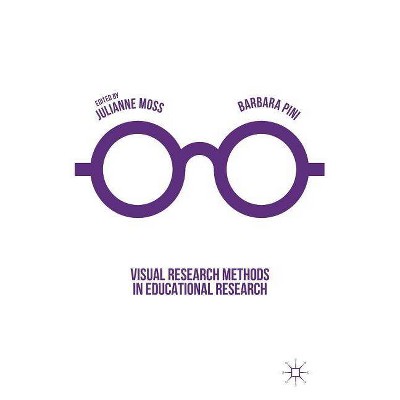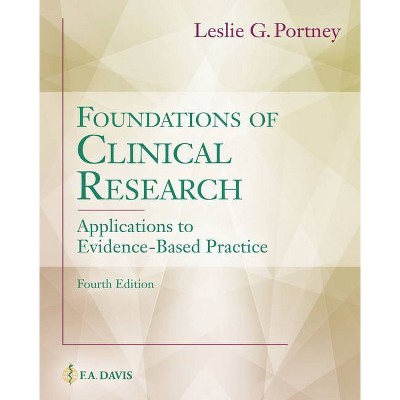Ethical Considerations When Preparing a Clinical Research Protocol - 2nd Edition by Evan Derenzo & Eric A Singer & Joel Moss (Paperback)

Similar Products
Products of same category from the store
AllProduct info
<p/><br></br><p><b> Book Synopsis </b></p></br></br><p><i>Ethical Considerations When Preparing a Clinical Research Protocol, Second Edition, </i>provides a foundation for improving skills in the understanding of ethical requirements in the design and conduct of clinical research. It includes practical information on ethical principles in clinical research, how to design appropriate research studies, how to consent and assent documents, how to get protocols approved, special populations, confidentiality issues, and the reporting of adverse events. The book's valuable appendix includes a listing of web resources about research ethics, along with a glossary, making it an invaluable resource for scientists collaborating in clinical trials, physician investigators, clinical research fellows, and more.</p><p/><br></br><p><b> Review Quotes </b></p></br></br><br><p>It has been over 10 years since the initial edition of this text. This second edition serves as a more updated, comprehensive, cursory reference toward the ethical considerations necessary for developing and implementing clinical research studies. The publication's most important message is delivered in section A.2.3., yet, it is a thread throughout the book: knowing the basic ethical principles as well as regulations relevant to clinical research are not enough; rather, it takes mentoring, discussing, and resolving constructs and concerns through a team approach, which may be raised and delivered by a clinical research protocol. My criticism of the book is that there is an unsettling lack of attention to the clinical research ethical requirement of respect for enrolled subjects as originally published by Emanuel et al. in 2000. The application of this principle is to be realized in the study monitoring processes that maximize benefit and minimize risk; those processes being commensurate with the level of risk offered by the study design, intervention, and/or population and environment in which the protocol will be conducted, as well as the personnel by which it will be conducted. Of particular note is that this monitoring may (or may not) call for independent monitoring outside of the study team as well as Institutional Review Board (IRB). The material of the text appears to be limited to the concept of a Data and Safety Monitoring Board, which is only briefly mentioned and, as only a recent phenomenon, not so! While there are other publications that more fully address the ethical principle of respect for enrolled subjects, it would be beneficial for this book to expound on this ethical principle and how it can be achieved during study conduct, as the book presents other ethical principle that are primarily applied during protocol development and initiation.<b> --Doody </b></p> <p>Review of the previous edition: This book will be a very useful text and reference source for students and trainees at all levels, as well as for seasoned investigators and RERB members. The continuing proliferation of formal, degree-granting masters and doctoral training programs in clinical investigation at academic centers across the country underscores the need for a book like this. These programs, and the growing acceptance and recognition of professional certification programs for clinical research professionals, are indicators that the expectations we place on investigators are greater than they were just a few years ago. Recognition that good science and good ethics are inextricably bound together in clinical research is today's reality, and this book gives real insight into why and how. <b>--JAMA, February 2006</b></p><br>
Price History
Price Archive shows prices from various stores, lets you see history and find the cheapest. There is no actual sale on the website. For all support, inquiry and suggestion messagescommunication@pricearchive.us




















